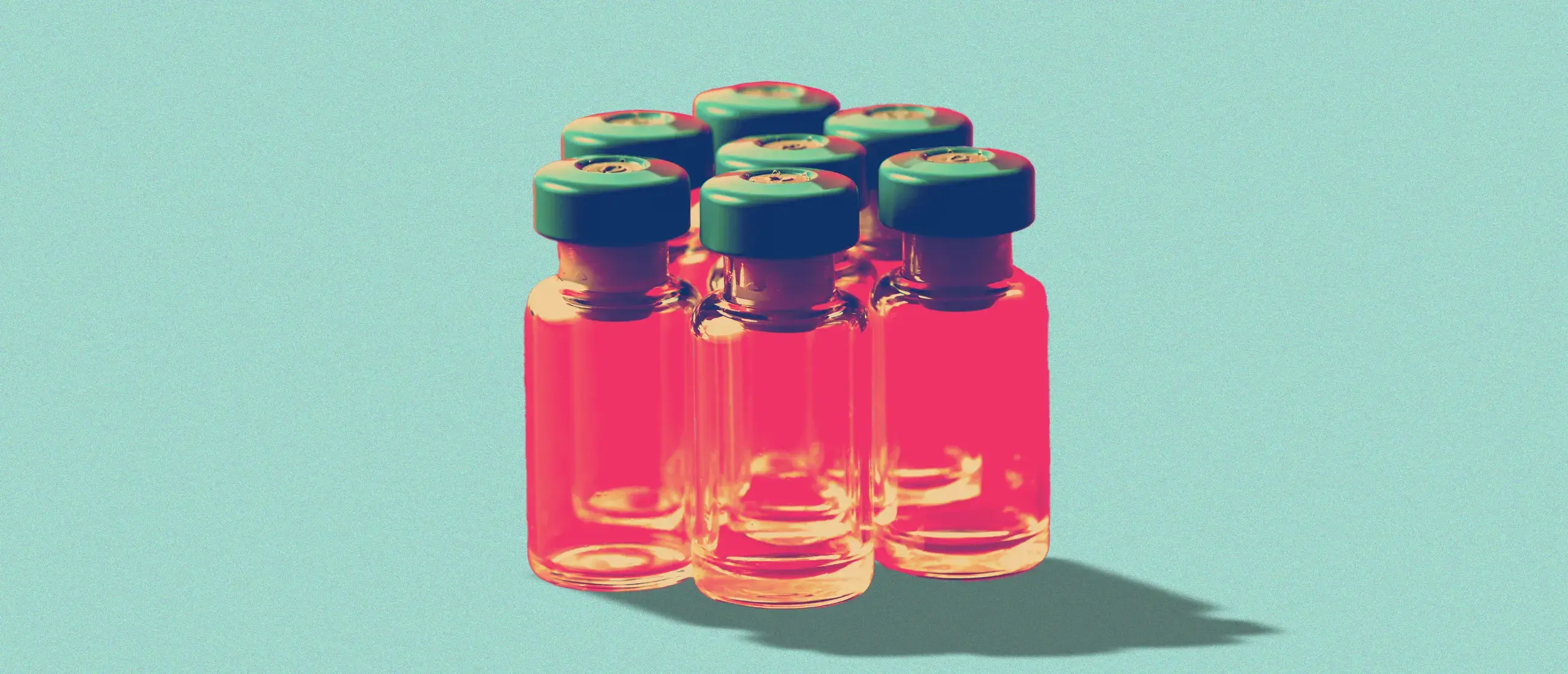Is Testosterone Addictive? A Men’s Hormone Expert Explains the Risk
- By Rebekah Harding
- February 13, 2024
Y
ou’ve likely heard of stories about ‘roided up bodybuilders developing steroid-related health consequences like heart failure and mood issues. So, men with low T who are considering testosterone replacement therapy (TRT) may wonder: Is testosterone addictive?
About the Expert:
Dr. James Staheli, D.O., is the medical director for Broad Health and a family medicine doctor in Atlanta, Georgia. He specializes in hormone treatment for men.
Is Testosterone Addictive?
There’s a huge difference between anabolic steroids—which are common in the bodybuilding community—and TRT prescribed by a doctor to treat clinically low testosterone.
Anabolic steroids typically contain high doses of unmonitored hormones—like testosterone or trenbolone—which are used for extreme muscle building (1). TRT is exogenous testosterone (testosterone administered to top up what your body is producing) that is prescribed and monitored by a physician to men to treat symptoms of low testosterone, like fatigue, low libido, muscle loss, and depression.
Testosterone addiction most commonly involves anabolic steroids. Regularly abusing them can lead to addiction (2). According to the Addiction Center, anabolic steroids are very addictive because a high dose can provide quicker and more dramatic aesthetic results. And quitting steroids is harder than stopping TRT—going cold turkey after taking huge doses of testosterone can squash your energy levels and may even lead to depression (2).
As long as you take your TRT as directed by a medical professional, the likelihood of becoming addicted is low, says hormone specialist Jim Staheli, D.O. However, in rare cases, testosterone (TRT) can also be abused if used improperly or excessively—for example, injecting yourself more frequently than prescribed or doubling your dose.
“Inappropriate use of testosterone may lead to heightened psychological and physiological effects (such as extreme muscle development and aggression) (3, 4),” he says. “These outcomes can lull users into addictive substance abuse and physically harmful consequences.”
Is it hard to stop testosterone?
If you’ve been prescribed TRT to treat debilitating symptoms of low testosterone such as depression, fatigue, muscle loss, and brain fog, you may be reluctant to stop treatment. But men do it all the time with ease.
While your symptoms will likely return if you decide to quit, your doctor can help you come up with a plan to wean you off slowly. Don’t quit cold turkey without consulting your healthcare provider first.
Your doctor may even prescribe you an alternative treatment like clomiphene citrate, which stimulates your body’s own production of testosterone. Men frequently switch from TRT to enclomiphene as they are trying to conceive, as testosterone therapy decreases sperm production (5).
Hone’s at-home testosterone assessment is the simplest way to uncover whether your levels are low. If you qualify for treatment, TRT can be sent right to your door.
Risks of Testosterone Misuse
According to Staheli, anabolic steroid addiction often leads to the following debilitating consequences:
- Cardiovascular: Enlarged heart, elevated cholesterol and lipids, heart muscle damage, blood clotting, and elevated homocysteine (an amino acid that can damage arteries in high levels)
- Vascular (blood vessels): Endothelial (cells that line your blood vessels) damage, fluid retention, and swelling
- Kidneys: Renal strain
- Liver: Liver damage
- Physical: Acne, hair loss, tendon injury, gynecomastia (man boobs), increased appetite, and weight gain
- Psychological: Aggression, violence, depression, suicide, insomnia, and mood swings
- Reproductive: Infertility, sexual dysfunction, testicular atrophy, and prostate enlargement
- Brain: Poor recognition of social cues and emotions and headaches
How to Prevent Testosterone Addiction
When you’re prescribed TRT to deal with symptoms of low T, your doctor will closely monitor your testosterone levels to make sure they stay within a normal range. If you begin to develop any of the above symptoms your physician will change your dose accordingly.
“Our physicians at Hone are very conscientious of addictive behavior and are conservative in their treatment approach,” Staheli notes. This includes frequently testing patients’ levels to make sure they maintain normal and safe levels of testosterone. “More is not better,” he notes.
If you believe you are experiencing an addiction to anabolic steroids or are misusing TRT, reach out to a healthcare provider who can explain treatment options. For immediate support, you can contact the Substance Abuse and Mental Health Services Administration (SAMHSA) hotline 24/7 at 1-800-662-4357.
References
1. Bhasin, et al (2018). Testosterone Therapy in Men With Hypogonadism: An Endocrine Society Clinical Practice Guideline.
2. Addiction Center. Anabolic Steroid Addiction And Abuse.
3. Daly, et al (2003). Neuroendocrine and behavioral effects of high-dose anabolic steroid administration in male normal volunteers.
4. Yu, et al (2014). Effects of Long Term Supplementation of Anabolic Androgen Steroids on Human Skeletal Muscle.
5. Patel, et al (2019). Testosterone Is a Contraceptive and Should Not Be Used in Men Who Desire Fertility.












